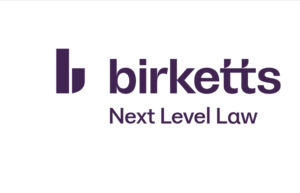The most common types of scam costing Brits billions

The most common types of scam that are costing Brits billions a year
Fraudsters conned hard working Brits out of £1.2bn last year.
Payment card fraud and remote banking scams were the two most common methods.
However, since 2020 there has been a 179% increase in CEO fraud.
There has also been a notable 76% increase in romance scams.
Losses due to advance fee fraud are up 45% since 2020, while purchase scams, impersonations and investment scams have also seen an increase.
The latest research by finance specialists, RIFT, has revealed that while Brits remain most susceptible to scams involving their payment cards, remote banking or investments, there’s been a sharp increase in criminals using CEO fraud to swindle unsuspecting victims out of millions during the pandemic.
Check out RIFT’s top tips to spot and report scammers at https://www.riftrefunds.co.uk/advice/guides/top-tips-to-help-spot-scammers/
Fraudsters conned hard working Brits out of £1.2bn last year, the majority of which (£726.9m) came via unauthorised scams such as payment card fraud and remote banking scams.
In fact, these two types of scam were by far the most common, accounting for 46% and 14% of total losses respectively.
However, the figures show that the total stolen via these unauthorised scams has actually fallen by -7% over the last two years, whilst more worryingly, the number of authorised scams has climbed by 15% since 2020.
The most common authorised scam is investment fraud, where criminals will trick you into investing your money into a fake investment opportunity, accounting for 9% of the total losses seen last year.
But while investment fraud may be the most common type of authorised scam, the 15% increase seen since 2020 has been driven by a rise in CEO fraud. CEO fraud is when a scammer pretends to be a senior company executive in order to persuade someone into providing sensitive personal information and since the start of the pandemic it’s estimated that total losses have increased by 179%.
There has also been a notable 76% increase in romance scams during the pandemic, whereby criminals go to great lengths to gain a victims trust, usually under the guise of starting a relationship, before they’re conned out of their hard earned cash.
Losses due to advance fee fraud, where victims are duped into paying for something upfront that never arrives, are up 45% since 2020, while purchase scams, impersonations and investment scams have also seen an increase.
Check out RIFT’s top tips to spot and report scammers at https://www.riftrefunds.co.uk/advice/guides/top-tips-to-help-spot-scammers/
Bradley Post, MD of RIFT, commented:
“While unauthorised scams remain by far the most common, the good news is that there has been a decline in losses over the last two years which suggests it’s becoming harder for fraudsters to access our hard earned money.
Of course, the flip side is that they are becoming increasingly devious in their attempts and this has seen a significant increase in losses due to authorised fraud, whereby unsuspecting victims actually provide their sensitive information to scammers.
CEO fraud has seen the largest increase in this respect, along with romance scams and so while they are far less common, the public should be aware of these scams and the fact they are becoming more widely utilised by criminals.”




